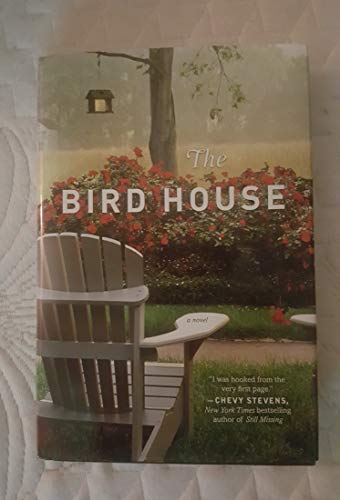The Bird House

Kelly Simmons is a tease.
I mean that, of course, in the best possible way. In The Bird House, Ann Harris, the novel’s septuagenarian narrator, reveals on page one, “Forty years ago, my young daughter died because of something I did. Notice I stop short of saying I killed her, even though I clearly did. No one knows this.” She then proceeds to obfuscate the crime with increasingly fraught tales of loneliness, lost fortunes, and marital infidelity.
That her eight-year-old granddaughter, Ellie, serves as Anne’s primary confessor only heightens the tension inherent in the narrator’s story as a combination of old age, dementia, and intergenerational scheming threatens to tear asunder the web of lies that constitute her life.
As the revelations about her thorny past pile up, Ann’s troubles in the present grow exponentially more complicated. Chief among them is a difficult relationship with her daughter-in-law, Tinsley, whose obsession with healthy living and concomitant aversion to risk are offset only by an apparent extramarital affair with her jogging partner.
Struggling to protect young Ellie from the truth even as she confronts Tinsley with the meager evidence she’s gathered, Ann soon finds herself on the defensive when the unfaithful daughter-in-law begins her own investigation into Ann’s alleged act of infanticide. At stake, then, is not only Ann’s peace of mind with respect to her own past but also any chance she has at a meaningful future with her granddaughter.
Fans of the author’s first novel, Standing Still, will be pleased to see Simmons returning to many of the tropes that marked her debut: fading photographs are as plentiful as the bittersweet memories they evoke, and men, for the most part, continue to pursue professional interests more doggedly than the women they purportedly love.
By focusing largely on the bond between Ann and Ellie, however, Simmons broadens her palette to examine the intricate dynamic between history and the present day—not to mention the role that storytelling plays in the relationship between both.
We are all beholden to the sins of the past, Simmons contends throughout The Bird House. But with the right combination of memory loss, calculated omission, and sheer fabrication, we can wipe the slate clean so that each new generation can stumble upon its own brand of less-than-original sin.
Part detective story, part family drama, and part metaphysical striptease, The Bird House is, more than anything, a smart, simmering page-turner that understands both the strength and vulnerability of the human heart.